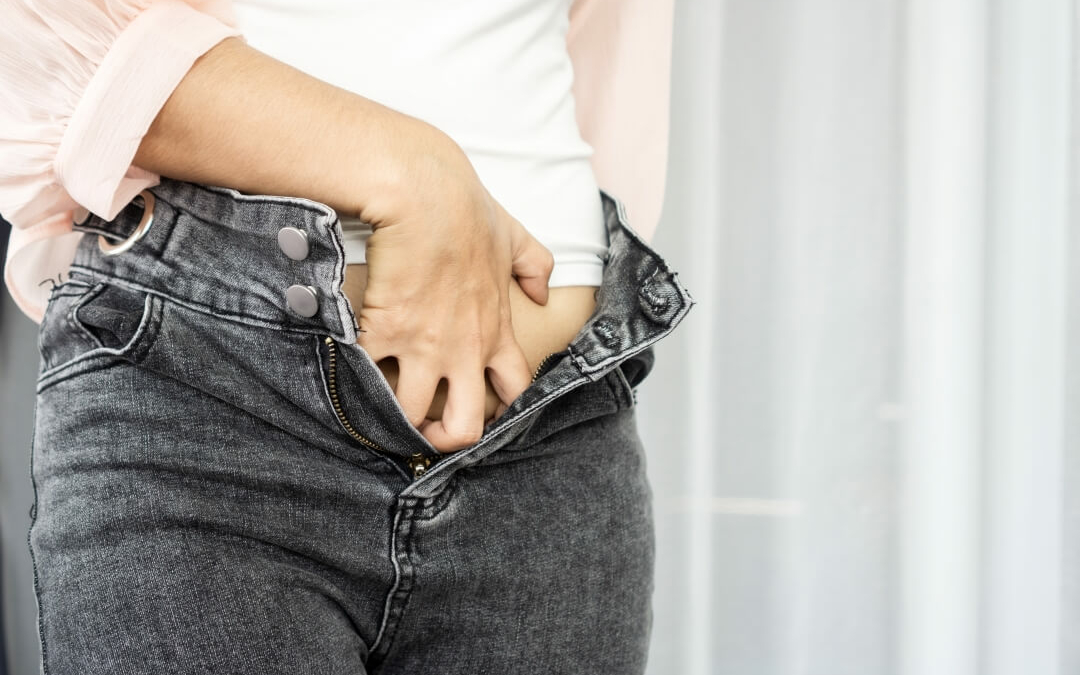Understanding and Managing Itchiness After Plastic Surgery
You’re cozy in bed recuperating from plastic surgery, and each day brings you closer to your dream results. You’re almost ready to flaunt your gorgeous new look.
Maybe you prepared for the recovery time, but nobody told you about the dreaded post-op itchiness of plastic surgery. The worst part? You can’t scratch an itch underneath your bandages. So what can you do?
Renowned Beverly Hills plastic surgeon Dr. Catherine Huang-Begovic has performed thousands of cosmetic procedures. She thoughtfully consults with patients pre- and post-op to give them the best possible care. Our top priority is our patients’ post-surgical skin health.
Ready to bid farewell to that pesky itch? Keep reading.
Post-op Itchiness: Why Does It Happen?
Rhinoplasty, breast augmentation, Brazilian butt lifts – your body undergoes a serious transformation after any type of plastic surgery. Most procedures involve a fat transfer from one body part to another.
While Dr. Cat’s technique ensures the highest possible chance of fat survival, it still takes a few weeks (6-8 for BBLs, for example) for that fat to safely stabilize into the surrounding tissue.
Also known as the fluffing phase, fat stabilization might make your skin feel a little tingly (or itchy) as the cells create new blood supplies to survive.
How long does the itchiness last?
The duration of post-operative itch can last as little as seven days to as long as eight weeks, depending on your cosmetic procedure.
Similarly, scar healing has its own process beneath and above the surface of the skin. Of course, Dr. Cat is known for her unique and meticulous procedural technique that minimizes scarring and thus reduces itching in her patients.
Any surgery can cause inflammation and subsequent itching, but external factors can exacerbate things.
For example, deep-fried foods or heavy carbs are inflammatory and might increase inflammation and itching. The same goes for alcohol, which we recommend you avoid until after you heal.
Alleviating post-op itching
Your first thought will be to peep under those bandages for a quick scratch or dollop of anti-itch cream. Unfortunately, neither are safe practices for managing surgery itching. So, how can you get some relief? Here are some ideas you might try:
- Hydrate: Dehydration will make your surgical site inflammation worse. Drink water regularly to hydrate your skin.
- Apply ice: Stuck in the LA heat with post-op itchiness? Sweltering sun and sweat can make things worse. Apply an ice pack or spend some time in a cooler space like a cold room or cellar to find relief.
- Take antihistamines: Post-surgery, the inflammation causes your body to produce histamines, which can worsen itchiness. An oral antihistamine like Benadryl or Zyrtec could help.
Whatever you do, don’t remove your bandages until after the period Dr. Cat recommended to you. This could slow down your recovery process and make your site vulnerable to infection.
Curious about post-surgery skin care? We’d only recommend natural itch relief treatments like manuka honey, plantain ointment, and drugstore anti-itch creams after your surgery scar is fully closed and you get the OK from your doc.
If you’re recovering from rhinoplasty surgery, you could use a saline intranasal spray post-bandage removal, but as always, check with your surgeon first.
Before you take any medications, call our office. We’ll help you discern which ones are best for your unique situation and whether your symptoms are more serious than the average post-op itch.
But what if your itchiness is extreme?
Normal itchiness versus signs of surgical complications
Post-op itchiness can feel uncomfortable and intense, but that’s just part of the recovery process. Still, we recommend you observe any other symptoms for any signs of infection or complications. If you notice any of the following, call our office right away:
- Puss or oozing liquid: If your bandages become wet and liquid seeps from your surgical site, that could indicate an infection. Don’t panic; it’s usually nothing we can’t address in our office. But if you’re out of the city, it’s best to visit a doctor as soon as you can.
- Swelling or redness: Some swelling is normal after surgery, but if it persists or feels profoundly painful, you should have a medical professional inspect your surgical site.
So, you’ve ruled out infection, cut out inflammatory foods and alcohol, and maybe even taken an antihistamine. But you just can’t ditch the itch. What gives? Remember to keep following Dr. Cat’s thorough post-op recovery instructions.
Recovery Tips Plastic Surgery: Dr. Cat’s Tips for Post-Surgical Skin Health
Every patient is different, and you might receive specific post-op instructions depending on your health history and specific surgery. After your surgical recovery, itching will go away. But to get there faster? Here are some general tips Dr. Cat recommends:
- Start with post-op: Dr. Cat carries out an in-depth consultation process before every surgery, which includes a number of medical tests 30 days pre-op. Successful recovery starts well before the operating room.
- Create a stress-free space: If clutter stresses you out on a normal day, imagine how you’ll feel in a cluttered space recovering from surgery. Clean up your space, and go ahead and buy those soft silk pillows you’ve been eyeing at Macy’s.
- Hydrate and eat well: You can get that Stanley Cup, but only if it’s filled with water at your bedside every couple of hours. Skin reflects what you feed your body. Without ample water, you might dry out your skin. The same goes for nourishing food. Ensure your diet is filled with whole foods with antioxidants and vitamins to keep recovery on track.
- Rest: A lack of sleep causes puffiness and irritated skin. By all means binge your favorite TV series (we love a good Sex and the City rerun sesh), but make sure you turn in for a full eight hours.
Mix it altogether, and you get gorgeous, lasting results.
Success Story: Post-Op Bliss with Dr. Cat
Dr. Cat is renowned for her impeccable precision in the operating room, resulting in minimal scarring and recovery time for patients. One of her specialty procedures is her signature tummy tuck, which has a nearly undetectable scar.
One client experienced stretching in her stomach after having three children. Exercise took care of some of the weight gain, but she suffered from separated abdominal muscles and lingering skin.

Dr. Cat removed about 3.5 pounds (13 inches) of loose skin in her abdomen area. She also performed a public lift and tightened the 5.5 inches of separated ab muscles. Within three months post-op, Dr. Cat’s patient felt confident and whole again with a strong core and flat belly:

Breeze Through Plastic Surgery with Dr. Cat
The post-op itchiness plastic surgery causes is a common recovery symptom after various plastic surgeries. But you can take steps to mitigate itchiness and other uncomfortable symptoms. And that all starts with choosing an excellent plastic surgeon.
Dr. Cat brings a skillful, unparalleled technique to her work that minimizes scarring and itching for her patients.
All of her success stories highlight smooth and relatively shorter recovery periods resulting from her stellar work, as well as her detailed post-op care that includes dietary guidance, gradual activity resumption, and tips for itch relief after surgery.
If you’re currently dealing with post-op itchiness, we’re here for you. You’re always welcome to contact us with any questions throughout your recovery period.
And if you’re considering a procedure? Post-op is temporary; but the confidence you’ll feel after achieving your dream look? That’s forever.


